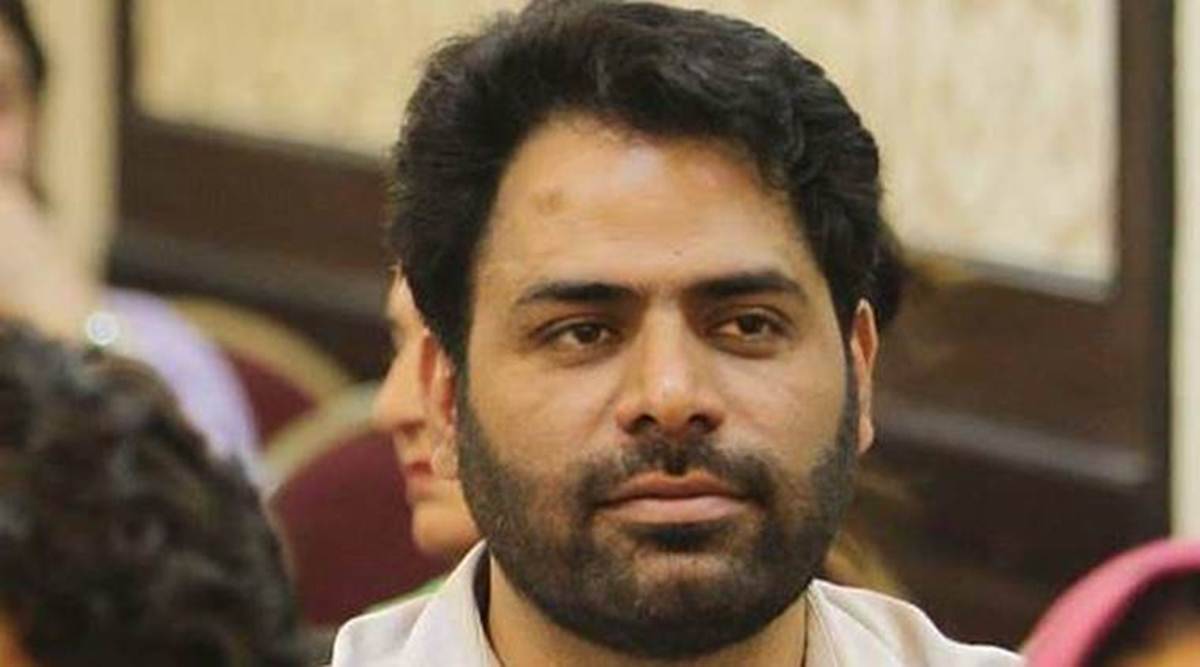
Soon after the Office of the United Nations High Commissioner for Human Rights (OHCHR) expressed concern over the arrest of a prominent Kashmiri rights activist Khurram Parvez under the stringent anti-terror law the Unlawful Activities (Prevention) Act, 1967 (UAPA), India has rejected the claims and defended use of UAPA. Arindam Bagchi, the spokesperson in the Ministry of External Affairs (MEA), has reportedly said that the OHCHR’s comment “betrays” a lack of understanding of the security challenges in Jammu and Kashmir, due to cross-border terrorism.
UN Human Rights Office spokesperson Rupert Colville had on Wednesday stated, “We are deeply concerned at the arrest of Kashmiri human rights defender Khurram Parvez under Indian counter-terrorism legislation, the Unlawful Activities Prevention Act (UAPA),” adding that the “UAPA empowers the authorities to designate individuals and organisations as terrorists, based on imprecise criteria, contains a vague and overly broad definition of ‘terrorist act’, allows people to be held in lengthy pre-trial detention and makes securing bail very difficult. It raises serious concerns relating to the right of presumption of innocence along with other due process and fair trial rights. The Act is also increasingly being used to stifle the work of human rights defenders, journalists and other critics in Jammu and Kashmir and other parts of India.”
However, on Thursday, the MEA spokesperson was quoted by multiple news media as saying, “The arrest and subsequent detention of the individual referred to in the statement was done entirely as per the provisions of law,” adding, “Authorities in India act against violations of law and not against legitimate exercise of rights. All such actions are strictly in accordance with the law.”
The MEA spokesperson said the OHCHR’s concerns were “baseless and unfounded” and “also betrays a complete lack of understanding” of the of the security challenges “faced by India from cross-border terrorism and its impact on the most fundamental human right, ‘the right to life’ of our citizens, including in Jammu and Kashmir.”
The OHCHR had reiterated its call for the UAPA to be “amended to bring it into line with international human rights law and standards,” and urged the authorities, “Pending the law’s amendment, to refrain from using this or other laws unduly restricting freedom of expression in cases involving civil society, media, and human rights defenders.” The UN Human Rights Office also put on record that it was “increasingly alarmed by the rise in killings of civilians, including members of religious minorities, by armed groups in Indian-administered Kashmir this year. At the same time, civilians have been killed by security forces in the course of counter-terrorism operations, and their bodies on occasion disposed in secret. One of these incidents happened on 15 November when four people were killed in a reported gunfight in Srinagar’s Hyderpora area, including two civilians.”
However, Bagchi has said that OHCHR’s stand was biased as it referring to “proscribed terrorist organisations” as ‘armed groups’. Defending UAPA, Bagchi stated that it was “enacted by Parliament to protect the sovereignty of India and ensure the security of its citizens.”
Hailing Parvez as “a tireless advocate for families of the disappeared,” the OHCHR had also said that Parvez “has been targeted before for his human rights work. In 2016, he was detained under another controversial law, the Public Safety Act, for two and a half months after being prevented from travelling to the Human Rights Council in Geneva. He was released after the Jammu and Kashmir High Court declared his detention illegal.” It also asked “Indian authorities to fully safeguard his right to freedom of expression, association and personal liberty and to take the precautionary step of releasing him” and expressed its concern at “signs of a wider crackdown on civil society actors in Jammu and Kashmir.”
The entire OHCHR statement may be read here.
The entire MEA statement may be read here.
Meawnhile, the World Organisation Against Torture (OMCT), a global network of more than 200 non-governmental organisations or NGOs, had also stated that it was “deeply concerned about the high risk of torture while in custody.” It also added that “Parvez’s arbitrary arrest and detention is the latest in a long list of human rights violations by Indian authorities against civil society groups, human rights activists, and media outlets in Jammu and Kashmir. The authorities have not ensured accountability for extrajudicial killings and other grave abuses by security forces in Kashmir but have instead arrested those who speak out for justice and human rights.”
The OMCT also asked Indian authorities to “immediately and unconditionally release Parvez and others arrested in politically motivated cases and drop all charges against them,” and “amend the Unlawful Activities Prevention Act to bring it in line with international human rights law and standards and pending its amendment, it should stop using it to target human rights defenders, critics of the government, and others exercising their basic human rights.”
Related:
Khurram Parvez’s arrest is another attempt to silence dissenters: PUCL
Kashmir based human rights activist Khurram Parvez arrested
Counter-terror raids on civil society groups signal escalating crackdown on dissent:
NIA Raids Day 2: Fresh searches conducted in Srinagar and Delhi today
Srinagar: NIA raids human rights defenders, NGOs, media house in terror funding probe
